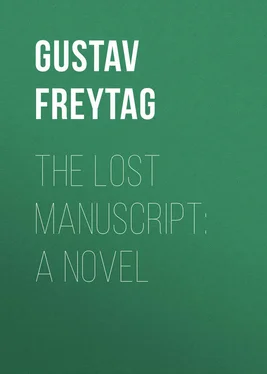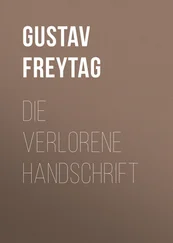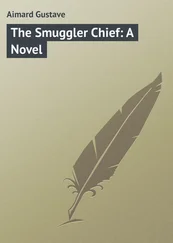Gustav Freytag - The Lost Manuscript - A Novel
Здесь есть возможность читать онлайн «Gustav Freytag - The Lost Manuscript - A Novel» — ознакомительный отрывок электронной книги совершенно бесплатно, а после прочтения отрывка купить полную версию. В некоторых случаях можно слушать аудио, скачать через торрент в формате fb2 и присутствует краткое содержание. Жанр: foreign_antique, foreign_prose, на английском языке. Описание произведения, (предисловие) а так же отзывы посетителей доступны на портале библиотеки ЛибКат.
- Название:The Lost Manuscript: A Novel
- Автор:
- Жанр:
- Год:неизвестен
- ISBN:нет данных
- Рейтинг книги:5 / 5. Голосов: 1
-
Избранное:Добавить в избранное
- Отзывы:
-
Ваша оценка:
- 100
- 1
- 2
- 3
- 4
- 5
The Lost Manuscript: A Novel: краткое содержание, описание и аннотация
Предлагаем к чтению аннотацию, описание, краткое содержание или предисловие (зависит от того, что написал сам автор книги «The Lost Manuscript: A Novel»). Если вы не нашли необходимую информацию о книге — напишите в комментариях, мы постараемся отыскать её.
The Lost Manuscript: A Novel — читать онлайн ознакомительный отрывок
Ниже представлен текст книги, разбитый по страницам. Система сохранения места последней прочитанной страницы, позволяет с удобством читать онлайн бесплатно книгу «The Lost Manuscript: A Novel», без необходимости каждый раз заново искать на чём Вы остановились. Поставьте закладку, и сможете в любой момент перейти на страницу, на которой закончили чтение.
Интервал:
Закладка:
"We shall see what can be done," replied the Doctor.
"Very well. In the stone quarry at the extremity of my property I have some extra hands at work; they shall remove the stone and then restore it to its place. Thus, I hope, the affair will be forever settled. Ilse, early in the morning let the shelving be removed from the wine-cellar."
The following day the stone-masons came, and the three gentlemen and Ilse descended into the cellar, and looked on curiously while the men exerted their power with pickaxe and crowbar on the square stone. It was placed upon the rock, and great exertions were necessary to loosen it. But the people themselves declared that there was a great cavity behind, and worked with a zeal that was increased by the repute of the haunted house. At last the stone was moved and a dark opening became visible. The spectators approached-both the scholars in anxious suspense; their host and his daughter also full of expectation. One of the stone-masons hastily seized the light and held it before the opening. A slight vapor came out; the man drew back alarmed.
"There is something white in there," he cried, full of fear and hope.
Ilse looked at the Professor, who with difficulty controlled the excitement that worked in his face. He grasped the light, but she kept it from him, and cried out, anxiously: "Not you." She hastened to the opening and thrust her hand into the hollow space. She laid hold of something tangible. A rattling was heard; she quickly withdrew her hand; but, terrified threw what she had laid hold of on the ground. It was a bone.
All gazed in horror at the object on the ground.
"This is a serious answer to your question," exclaimed the Proprietor. "We pay a dear price for our sport."
He took the light and himself searched the opening; a heap of bones lay there. The others stood around in uncomfortable silence. At last the Proprietor threw a skull out into the cellar, and cried out cheerfully, as a man who is relieved from painful feeling:
"They are the bones of a dog!"
"It was a small dog," assented the stone-mason, striking the bone with his pick. The rotten bone broke in pieces.
"A dog!" cried the Doctor, delighted, forgetting for a moment his blighted hope. "That is instructive. The foundation wall of this house must be very old."
"I am rejoiced that you are contented with this discovery," replied the Proprietor, ironically.
But the Doctor would not be disconcerted, and related how, in the early middle ages, there had been a superstitious custom of enclosing something living in the foundation-wall of solid buildings. The custom descended from the ancient heathen times. The cases were rare where such things were found in old buildings, and the skeleton now found was an indisputable confirmation of the custom.
"If it confirms your views," said the Proprietor, "it confirms mine also. Hasten, men, to replace the stone."
Then the stone-mason lighted up and felt again in the opening and declared that there was nothing more there. The workmen restored the stone to its place, the wine was replaced and the matter settled. The Doctor bore the jeering remarks, of which the Proprietor was not sparing, with great tranquillity, and said to him:
"What we have discovered is certainly not much; but we know now with certainty that the manuscript is not to be found in this part of your house, but in some other. I take with me a careful record of all the hollow places in your house, and we do not give up out claims in regard to this discovery; but we consider you from now on as a man who has borrowed the manuscript for his own private use for an indefinite time, and I assure you that our wishes and desires will incessantly hover about this building."
"Pray allow the persons who dwell there to participate in your good wishes," replied the Proprietor, smiling, "and do not forget that in your researches after the manuscript you have in reality found the dog. For the rest, I hope that this discovery will free my house from the ill-repute of containing treasures, and for the sake of this gain I will be quite content with the useless work."
"That is the greatest error of your life," replied the Doctor, with grave consideration; "just the reverse will take place. All people who have an inclination for hidden treasure will take the discovery in this light, that you are deficient in faith and have not employed the necessary solemnities, therefore the treasure is removed from your eyes and the dog placed there as a punishment. I know better than you what your neighbors will record for posterity. Tarry in peace for your awakening, Tacitus! Your most steadfast friend departs, and he whom I leave behind begins to make undue concessions to this household."
He looked earnestly at the Professor and called Hans to accompany him on a visit to the village, in order to take a grateful leave of his old crones, and to obtain one of the beautiful songs of the people, of which he had discovered traces, to take home with him.
He was gone a long time; for after the song there came to light unexpectedly a wonderful story of a certain Sir Dietrich and his horse, which breathed fire.
When, toward evening, the Professor was looking out for him, he met Ilse who, with her straw hat in her hand, was prepared for a walk.
"If you like," she said, "we will go to meet your friend."
They walked along a meadow between stubble-fields, in which here and there grass was to be seen peeping up amongst the stubble.
"The autumn approaches," remarked the Professor; "that is the first sign."
"Winter-time is tedious to some people," answered Ilse, "but it puts us, like Till Eulenspiegel, in good spirits, for we enjoy its repose, and think of the approaching spring; and when the stormy winds rage round us, and the snow drifts to a man's height in the valleys, we sit at home in warmth and comfort."
"With us in the city the winter passes away almost unheeded. The short days and the white roofs alone remind us of it, for our work goes on independently of changing seasons. Yet the fall of the leaf has from my childhood been depressing to me, and in the spring I always desire to throw aside my books and ramble through the country like a traveling journeyman."
They were standing by a bundle of sheaves. Ilse arranged some of them as a seat, and looked over the fields to the distant hills.
"How different it is with us here," she began after a pause. "We are like the birds which year after year joyously flap their wings and live in contentment. But you think and care about other times and other men that existed long before us. You are as familiar with the past as we are with the rising of the sun and the forms of the stars. If the end of summer is sorrowful to you, it is equally as sorrowful to me to hear and read of past times. Books of history make me very sad. There is so much unhappiness on earth, and it is always the good that come to a sorrowful end. I then become presumptuous, and ask why God has thus ordered it? It is really very foolish to feel thus. But for that reason I do not like to read history."
"I well understand that frame of mind," answered the Professor. "For wherever men seek to enforce their will in opposition to their time and nation, invariably they meet the fate that befalls the weak. Even that which the strongest accomplish has no permanent lastingness. And as men and their works disappear, so do peoples. But we should not irrevocably attach our hearts to the fate of a single man or a single nation, we should rather strive to understand why they have grown great, and why they have perished, and what was the abiding gain that through their life the human race has eternally won. The account of their fortunes will then become but a veil, behind which we discover the operation of other forces and powers of life. We learn that in the men that succumb in this great struggle and in the nations that decline, a still higher hidden life dominates, which lives on creating and destroying in rigid accordance with eternal laws. To discover the laws of this higher life and to feel, to experience the blessing that this creating and destruction has brought into our existence, that is the duty and the ambition of the historian. From this point of view dissolution and death are transformation into new life. And they who have learned thus to look upon and observe the past-for them its study increases their security and ennobles their heart."
Читать дальшеИнтервал:
Закладка:
Похожие книги на «The Lost Manuscript: A Novel»
Представляем Вашему вниманию похожие книги на «The Lost Manuscript: A Novel» списком для выбора. Мы отобрали схожую по названию и смыслу литературу в надежде предоставить читателям больше вариантов отыскать новые, интересные, ещё непрочитанные произведения.
Обсуждение, отзывы о книге «The Lost Manuscript: A Novel» и просто собственные мнения читателей. Оставьте ваши комментарии, напишите, что Вы думаете о произведении, его смысле или главных героях. Укажите что конкретно понравилось, а что нет, и почему Вы так считаете.












